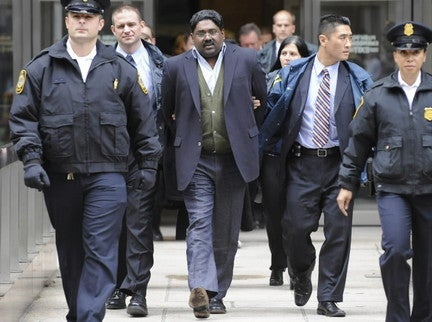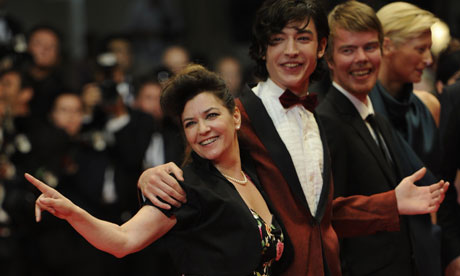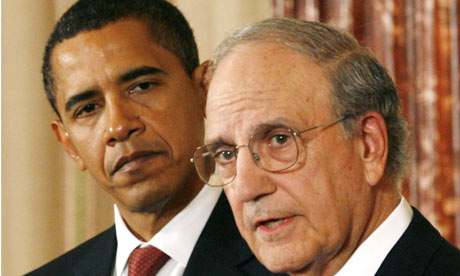"Recently over drinks, a new acquaintance who once worked for Goldman Sachs revealed, unprompted, his role as a footnote in an SEC investigation. He said he'd been a member of the bank’s structured finance team — the one hauled before a congressional committee to defend Goldman’s notorious Abacus deal, a toxic CDO it had marketed to clients without informing them it had essentially been rigged to explode. 'Fabulous Fab, you remember him?' the ex-Goldmanite volunteered. 'I know those guys! I worked with them!' Such tin-eared braggadocio can sound frankly pathological, the equivalent of telling a stranger, 'I played Winged Foot with Madoff! Great guy!' But the financial world’s culture of name-dropping is so ingrained that it becomes hard not to do. It’s the reason entry-level bankers will often claim to be 'pretty tight' with executives they met once at a benefit dinner: On Wall Street, who’s on your BBM list is in some ways as important as what’s in your bank account. Connections help you make more money and get a bigger job, but they also have value unto themselves, as social currency. So you flaunt them, a lot — even when the government is listening in. The trial that led to the conviction of Galleon Group’s Raj Rajaratnam for insider trading revealed how the hedge-fund billionaire amassed inside information on companies like Clearwire, Akamai, and AMD by feverishly working his contacts. But the taped phone conversations that were the centerpiece of the government’s case also showed him to be a prolix practitioner of the 'I know a guy ... ' move. He dropped name after name in the act of exchanging illicit information — not because he had to, but because it allowed him to peacock his Rolodex." (NYMag)
"Chelsea Clinton wowed the power-lunch crowd at Michael's yesterday by stopping in for tea with director Ron Howard. A casually dressed Clinton slipped in at 2 p.m. and spent more than an hour chatting with the 'Frost/Nixon' and 'A Beautiful Mind' Oscar winner, who last year directed a 'Funny or Die' skit featuring Will Ferrell as George Bush and Darrell Hammond as Bill Clinton. Also at the Midtown favorite were power agent Andrea Eastman with Gabriel Byrne, YSL's Brant Cryder, Quest magazine's Chris Meigher and daughter Elizabeth with p.r. maven Alison Brod" (PageSix)
"Watching Republicans clutching their pearls to see the rapper Common invited to the White House on a poetry night Wednesday has revealed a party whose stars are grievously out of touch with the culture they hope to lead, as well as to culture in general, apparently. It is understandable that some would imagine if the Obamas convene a poetry night, the invitees would be the likes of Billy Collins or Elizabeth Alexander, who read a poem at the President’s inauguration. But this is 2011, in which in terms of people about 50 and younger, the idea of poetry as only, or even mainly, writerly observations on the printed page is about as current as the idea that a newspaper is a physical object. Although not all process it quite this way, poetry now occupies a more central place in the lives of typical young Americans of all colors than it ever has in the history of the nation—as rap music. The only question would be why the Obamas, as today’s Kennedys, would not include a rapper on their list. Anyone who can see nothing valid in rap reaching the White House hasn’t listened to much rap since about—well, in Sarah Palin’s case, apparently 1979. Helpfully letting us know that her problem with Wednesday’s White House event was not based on being 'anti-rap,' Palin told us that she knows the words to that year’s 'Rapper’s Delight,' the hit that created a new musical era. Indeed, those lyrics were cute, but hardly something one would expect the First Couple to be musing upon after dinner." (John McWhorter)
"There were a slew of deals announced at Cannes yesterday, too, most excitingly the team up between Martin Scorsese and Lars Von Trier … Plus … Pierre Morel, who directed the wildly successful Liam Neeson vehicle Taken, is courting Alex Pettyfer and Matthew Goode to play slick but crooked brothers in a new thriller, Overdrive. And, rather more amazingly, Michael Winterbottom is to direct Jack Black in a new comedy, Bailout, which Ealing Metro International is pre-selling in Cannes. It's based on Jess Walter's book The Financial Lives of the Poets about a down-on-his-luck bloke offered a bizarre business opportunity ... Anne Thompson reporting that the Weinsteins have bought The Iron Lady, the Meryl Streep as Mrs Thatcher movie." (Guardian)
"Bentleys and Hermès bags are selling again. Yet the wealthiest Americans are emerging from the financial downturn as different consumers than they were. Lyndie Benson says she now mentally calculates the 'price per wear' of designer clothing. As the wife of saxophonist Kenny G, Ms. Benson, a photographer, can afford what she wants. She used to make a lot of impulse purchases, she says. But when shopping in Malibu, Calif., recently, she stopped herself before buying a gray Morgane Le Fay suit she'd tried on. 'I walked outside and thought, 'Hmmm, I don't really love it that much,' she says with contentment. A number of surveys released in the past six weeks suggest Ms. Benson's new selectiveness is widespread among the wealthiest Americans. Though many of these people might seem unscathed by the financial crisis—they didn't lose their homes, jobs or retirement savings—they were deeply affected by what took place around them. 'If you're conscious at all, it just seeps in,' Ms. Benson says. What's showing up in the latest research is a broad-based caution—a sudden aversion to salespeople, a tepid response to ads focused on brand images, and a new interest in price-shopping." (WSJ)
"President Obama’s chief envoy to the Middle East, former Senator George J. Mitchell Jr., is leaving that post after two mostly futile years pressing Israelis and Palestinians to make peace, administration officials said on Friday. Mr. Obama was expected to issue a statement later in the day. The news comes ahead of a critical week in which the president is to deliver a much-anticipated speech on policy toward the Middle East in the wake of the killing of Osama Bin Laden and revolutions in the Arab world, and then to meet with the prime minister of Israel, Benjamin Netanyahu, with whom the White House has had fraught relations. The White House press secretary, Jay Carney, was asked repeatedly at his daily briefing with reporters about the awkward timing of Mr. Mitchell’s departure, and whether it symbolizes a sense of defeat over prospects for negotiating a two-state solution between Israel and Palestinian officials." (NYTimes)
"These are strange, exhilarating times to be working on the Democratic Republic of the Congo. For the first time since full-fledged war broke out in the central African country in 1996, the American public seems to be waking up to the brutality of the conflict there. Over the past year, there has been a flurry of activity inside and outside the Beltway -- in congressional hearings, Oprah shows, and Broadway theater. The country's ongoing rape epidemic is finally getting front-page treatment. Congress passed a bill specifically on the Congo, and lawmakers and corporate boards in California, Pittsburgh, and universities around the country may soon follow suit. For those of us who have been writing about or working in Congo for over a decade, this attention is anachronistic. Past is the height of the war, when nine African countries slugged it out through the country's jungles, savannahs, and highlands, splitting the country into half a dozen fiefdoms. Since 2003, the country has been unified; troops from Rwanda, Uganda, Zimbabwe, and Angola have (largely) withdrawn. Elections were held in 2006, confirming Joseph Kabila -- who had taken over after his father's assassination in 2001 -- as president. Despite the peace deal, violence has escalated in recent years in the eastern Kivus region -- along the border with Rwanda and Burundi -- as the government has tried to root out remaining armed groups through brutal counterinsurgency campaigns. While conflict has become confined to a smaller area and is less regional, it is still incredibly vicious." (ForeignPolicy)

"One key takeaway from the news that Wisconsin Senator Herb Kohl is set to retire is that the national Republican Party could end up coming to regret Governor Scott Walker’s overreach in a major way: It could cost Republicans a Senate seat they might otherwise have had a better shot at winning. Kohl’s retirement means that there may now be a competitive race for a seat that would otherwise have remained securely in Dem hands. As national Republicans are pointing out this morning, Tea Partyer Ron Johnson’s victory over Russ Feingold last year suggests that this race, too, could be up for grabs. 'As Russ Feingold discovered last year, whomever the Democrats eventually nominate, he or she will have a very tough time selling Wisconsinites on the Washington Democrats’ agenda,' the NRSC said in a statement. And as Steve Kornacki pointed out recently, Feingold’s loss showed that Wisconsin isn’t as liberal as it appears. But the key is that a lot has happened in Wisconsin since Feingold’s loss. The months long war in the state over Scott Walker’s effort to strip public employees of their bargaining rights has galvanized the Democratic Party in Wisconsin in a major way and — if polls showing the unpopularity of Walker’s proposals are any guide — has tilted independents and moderates in the state against GOP rule." (WashPo)








No comments:
Post a Comment